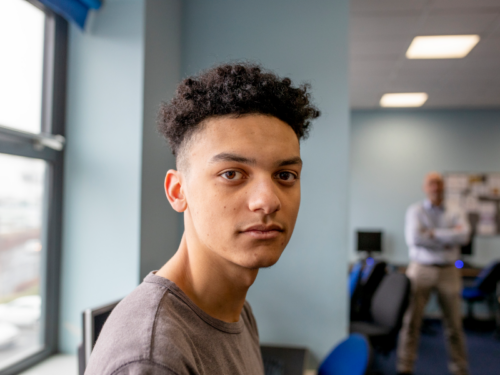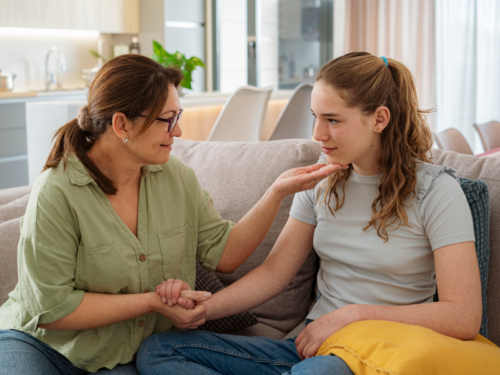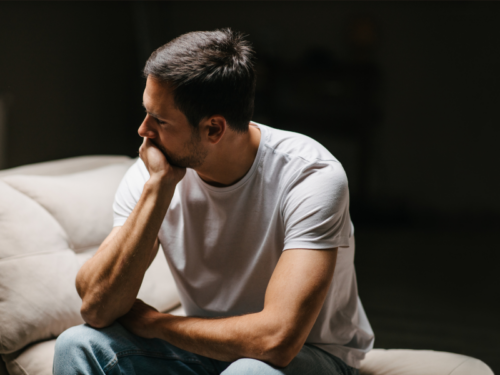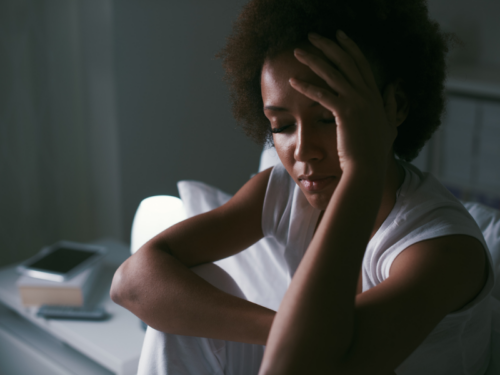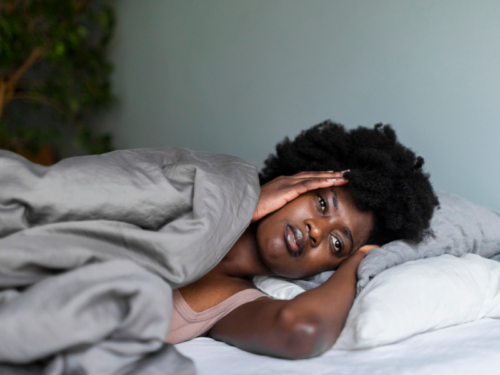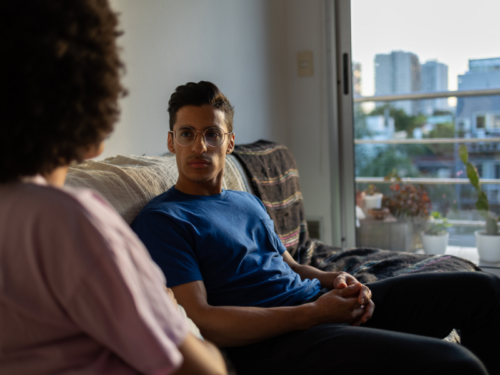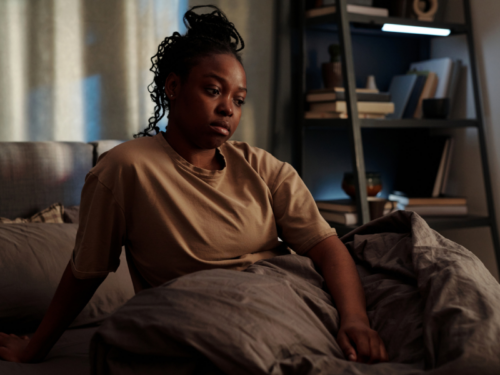Anxiety Treatment for Teens and Adults
Our therapists specialize in cognitive behavioral therapy, a leading anxiety treatment, to provide evidence-based mental healthcare for teens and adults dealing with anxiety disorders. Fill out the short form below or call us directly to start healing from anxiety today with Charlie Health.
More than 91% of clients see improvements in their most severe mental health symptoms.
How is anxiety diagnosed?
Anxiety is diagnosed through a comprehensive clinical assessment based on a person’s symptoms, medical history, and relevant social factors. The Diagnostic and Statistical Manual of Mental Disorders (DSM-5) criteria are typically used as a guideline for diagnosing specific anxiety disorders, such as generalized anxiety disorder (GAD), panic disorder, or social anxiety disorder. Tests or questionnaires may be used to help with the diagnosis.
How does Charlie Health treat anxiety?
Charlie Health takes an integrative approach to creating customized treatment plans for anxiety. Through our multivariate treatment mapping model, we take clients with anxiety as their primary diagnosis and match them into groups with other clients their age struggling with anxiety.
Creating group connection among those struggling with the same mental health issues, such as anxiety and anxiety-related disorders, is how we create long-term, sustainable healing.
Beyond curated groups, though, each client is matched with a primary therapist with extensive training in CBT, relational therapy, and ACT in order to give them the individual therapeutic interventions needed to help them navigate their anxiety, triggers, and relationships.

We proudly partner with many major insurance providers, including commercial, Medicaid, and TRICARE
What are the best therapy options for anxiety treatment?
Cognitive behavioral therapy (CBT)
CBT helps people recognize and change anxious thoughts, like catastrophizing or black-and-white thinking, and replace them with more rational and balanced thoughts. In CBT, people also learn practical coping strategies to manage their anxious symptoms, like relaxation techniques and slow exposure to facing fears.
Psychodynamic relational therapy
Psychodynamic relational therapy helps people with anxiety look at how emotional conflicts and relational dynamics contribute to their anxiety symptoms. By building a strong and open relationship with their therapist, clients can explore their unconscious fears and anxieties and how these affect their current relationships and behaviors. Over time, these insights can help people with anxiety develop coping skills and reduce anxiety symptoms.
Acceptance and commitment therapy (ACT)
Acceptance and commitment therapy (ACT) helps people accept their anxious thoughts and feelings rather than fighting against them. It also teaches people mindfulness skills to observe and reduce the impact of anxiety. These skills, over time, help people make choices that are aligned with their values and goals, even when anxiety makes it challenging. Overall, ACT enables people to feel more in control of their anxiety.
How it works
Reach out
Call our Admissions Team 24/7 or fill out our quick online form to verify your insurance coverage and get started
Get matched
We’ll conduct a thorough assessment to create your personalized virtual treatment plan
Start healing
Meet your peers in groups and your primary therapist in as little as 24 hours
Mental health conditions associated with anxiety
FAQs about Anxiety
See All FAQsWhat is anxiety?
Anxiety is a natural and adaptive response to stress or perceived threats. It involves feelings of unease, worry, and apprehension, often accompanied by physical symptoms such as increased heart rate, sweating, and muscle tension.
While occasional anxiety is common, it becomes a concern when it becomes chronic and interferes with daily life. Anxiety disorders are characterized by excessive, persistent anxiety and can benefit from various treatments, including therapy, medication, and lifestyle changes.
What are the main types of anxiety?
Some of the main types of anxiety disorders are as follows:
- Generalized anxiety disorder (GAD): Excessive worry and anxiety about various aspects of life
- Panic disorder: Recurrent and unexpected panic attacks
- Specific phobias: Intense fear of specific objects or situations
- Social anxiety: An intense fear of social situations and a persistent worry about being judged or embarrassed in front of others.
- Separation anxiety disorder: Excessive fear of separation from attachment figures, often seen in children.
Symptoms of anxiety
Symptoms of anxiety can include:
- Excessive worry, fear, and restlessness
- Irritability
- A sense of impending doom
- Rapid heart rate and shortness of breath
- Racing thoughts
- Difficulty concentrating
- Avoiding anxiety-inducing situations or triggers
It’s important to understand that not everyone with anxiety will have all these symptoms, and their severity and duration can vary widely.
Is anxiety different for teens and adults?
Teens and adults may face different challenges, meaning that their anxiety symptoms can manifest differently. For example, teens may be anxious about school, friends, or future jobs. Also, anxiety can make young people feel more irritable, and they may take more risks. It’s important to notice these signs and connect people with support, like therapy, to prevent possible long-term issues.
How common is anxiety?
Anxiety disorders are one of the most common mental health conditions globally. According to the World Health Organization (WHO) estimates that about 3.6% of people worldwide have an anxiety disorder. Anxiety can happen to anyone at any age, but it’s most commonly diagnosed in younger people and often begins in childhood.
What causes anxiety?
The causes of anxiety vary from person to person, but it is believed to be a result of genetic, biological, and environmental factors. Genetic predisposition, brain chemistry imbalances, and chronic stress or trauma can all contribute to anxiety.

